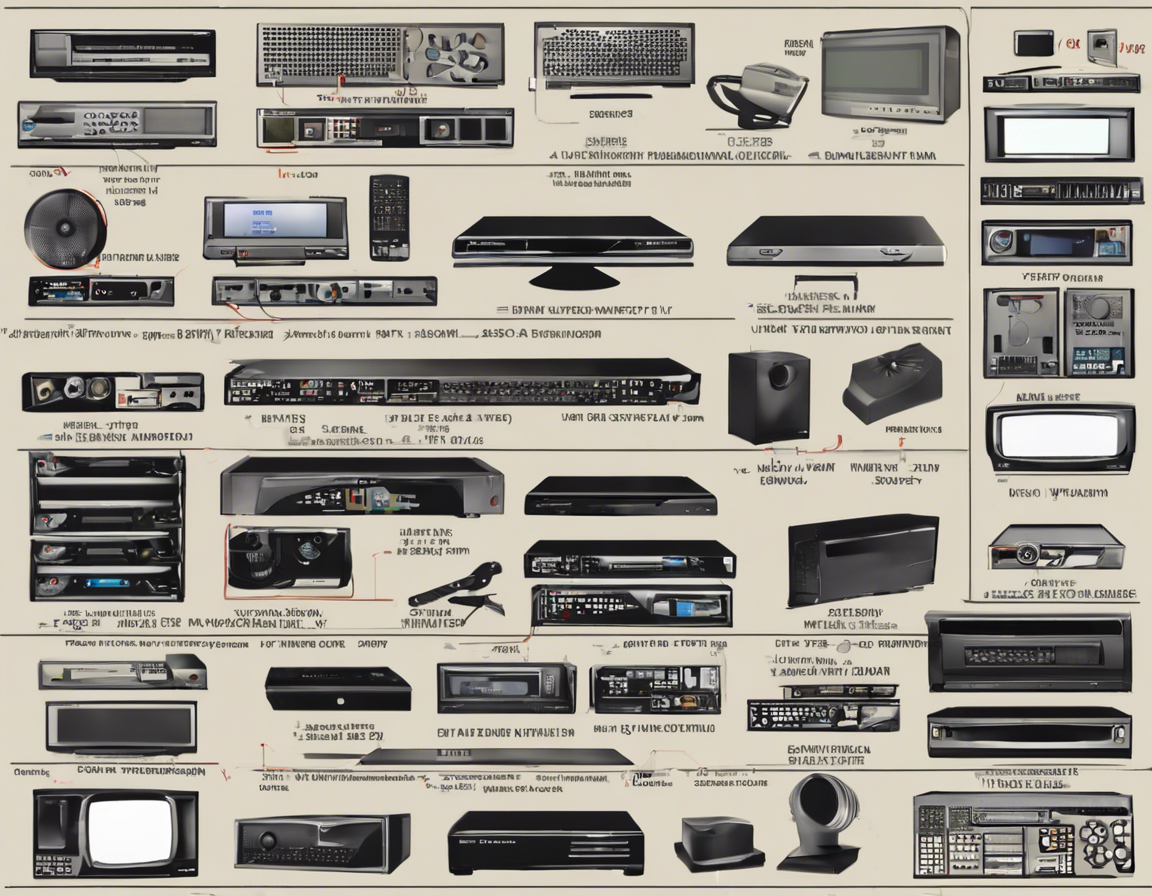Decoding DVR: What Does DVR Stand For?
In the realm of modern technology, acronyms are ubiquitous, often leaving us puzzled as to what they actually represent. One such acronym that we encounter frequently is DVR. In this comprehensive guide, we will delve into the world of DVR and uncover its significance, applications, benefits, and more.
What is DVR?
DVR stands for Digital Video Recorder. It is a device used to record and store video in a digital format. DVRs are widely used in surveillance systems, television systems, and for various other applications where video recording is essential.
The Evolution of DVR
Originally, video recording was done using analog tapes that stored video signals in a magnetic format. However, DVRs revolutionized this process by converting analog video signals into digital format for recording, storage, and playback.
How Does DVR Work?
DVRs capture video signals from cameras or other sources and convert them into digital format using codecs. These digital files are then stored on a hard drive within the DVR. Users can access these recordings at any time, rewind or fast forward, and even schedule recordings in advance.
Applications of DVR
DVRs have a wide range of applications, including:
-
Surveillance Systems: DVRs are extensively used in security systems to monitor and record activities in both residential and commercial settings.
-
Television: Many households utilize DVRs to record television programs for later viewing, allowing them to pause, rewind, and fast forward live TV.
-
Video Production: In the professional realm, DVRs are used for video editing, recording live events, and capturing footage for various projects.
-
Education: Educational institutions leverage DVRs to record lectures, presentations, and training sessions for future reference.
Benefits of Using DVR
-
Convenience: With DVRs, users can easily record and access video content without the need for tapes or DVDs.
-
Flexibility: DVRs offer flexibility in recording schedules, playback options, and remote access to recordings.
-
Storage: Digital storage on DVRs allows for efficient organization and archiving of video content.
-
Quality: Digital recordings offer higher quality compared to analog formats, providing clearer images and sound.
Types of DVR
There are several types of DVRs available, each catering to specific needs:
-
Standalone DVR: A single unit that includes all necessary components for recording and playback.
-
PC-Based DVR: Utilizes a computer system for video recording, storage, and playback.
-
Network DVR: Allows for remote viewing and access to recordings via a network connection.
-
Hybrid DVR: Combines analog and IP camera inputs for versatile surveillance solutions.
Choosing the Right DVR
When selecting a DVR, consider the following factors:
- Number of Channels: Determine how many cameras you need to connect to the DVR.
- Storage Capacity: Ensure the DVR has sufficient storage for your recording needs.
- Remote Access: If remote viewing is essential, opt for a DVR with network connectivity.
- Resolution Support: Choose a DVR that supports the resolution of your cameras for optimal video quality.
Frequently Asked Questions (FAQs)
-
Can DVRs record audio as well as video?
-
Yes, many DVRs have the capability to record audio along with video, providing comprehensive surveillance coverage.
-
Are DVRs compatible with all types of cameras?
-
DVRs come in various configurations to support different types of cameras, including analog, IP, and HD cameras.
-
How long can DVRs store recorded footage?
-
The storage capacity of a DVR depends on the hard drive size and compression settings. It can range from a few days to several months.
-
Do DVRs require an internet connection for recording?
-
While an internet connection is not mandatory for recording on DVRs, it is needed for remote access and online functionalities.
-
Can DVRs be used in outdoor settings?
-
Yes, there are DVRs specifically designed for outdoor use, equipped with weatherproof casings to withstand outdoor conditions.
In conclusion, a DVR is a versatile tool that has transformed the way we record and access video content. Whether for security, entertainment, or professional purposes, DVRs offer convenience, flexibility, and high-quality recordings. By understanding the nuances of DVR technology and its applications, users can make informed decisions when choosing the right DVR for their needs.
